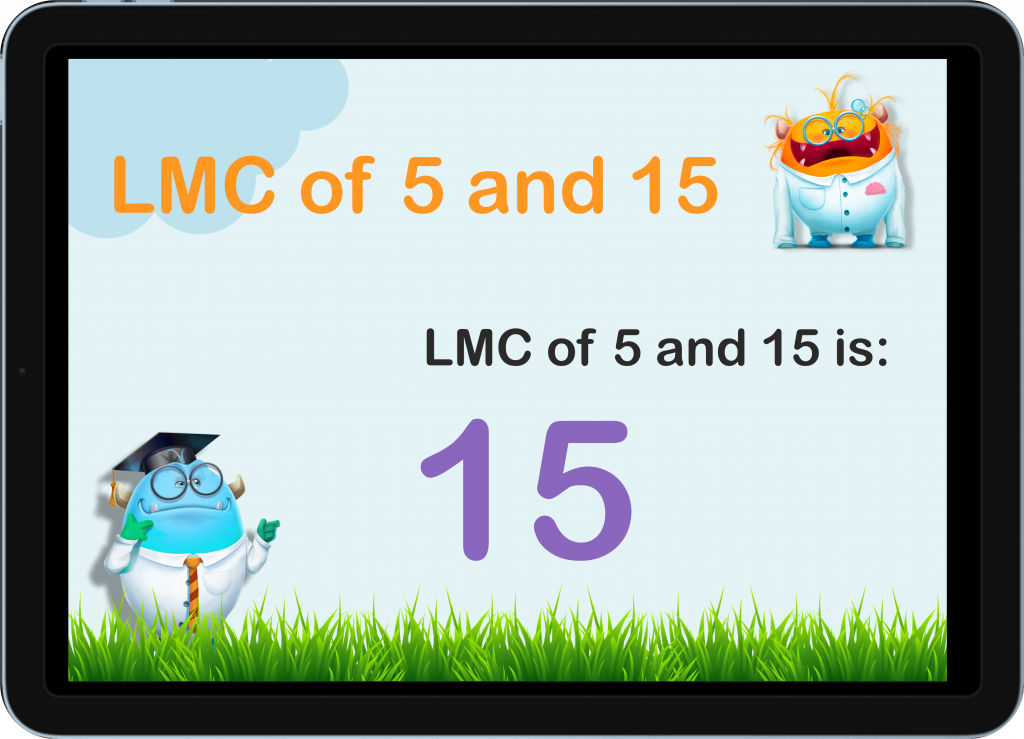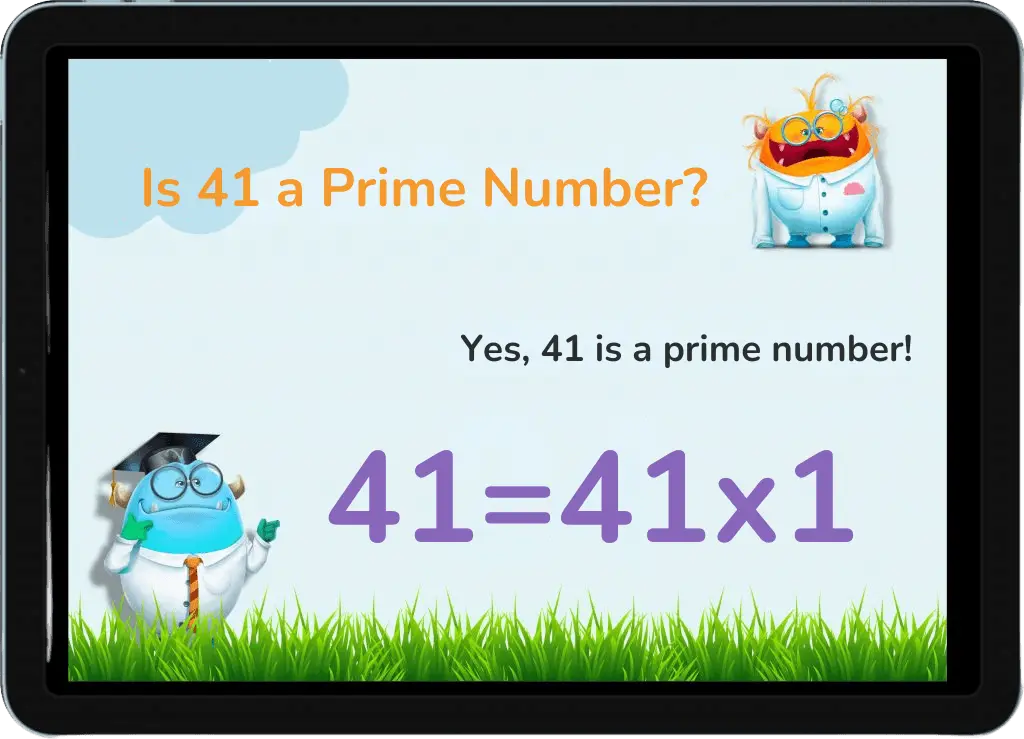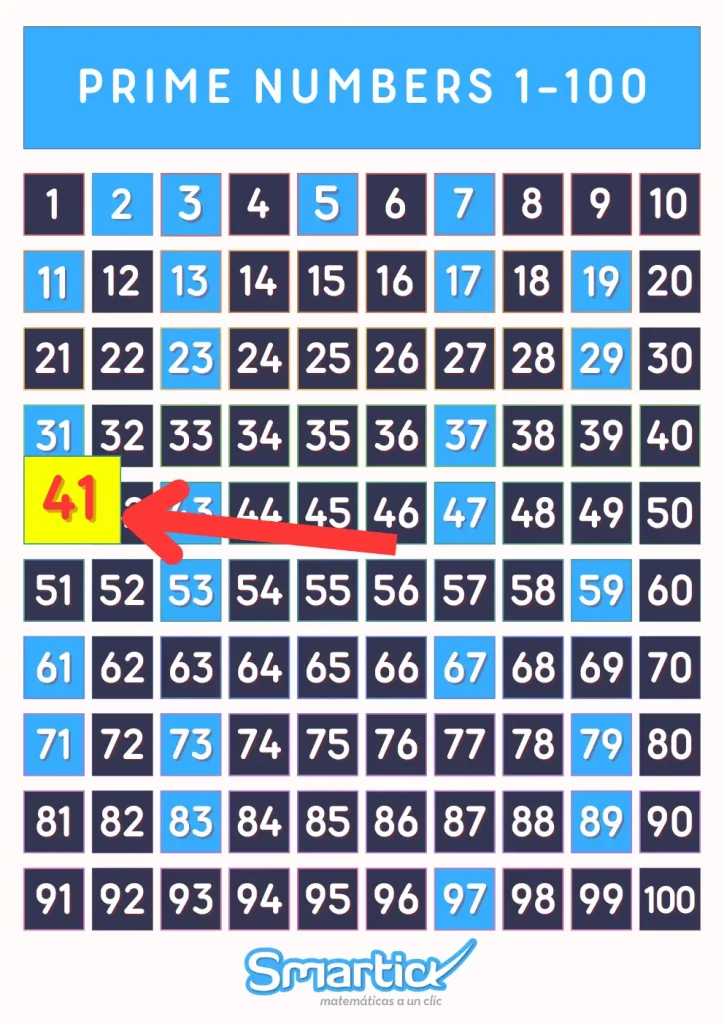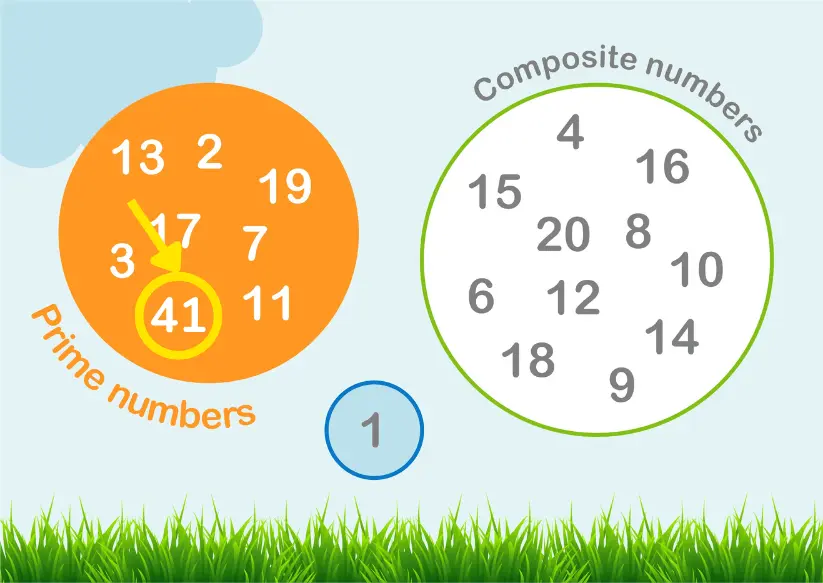Is 2 A Prime Number?
Prime vs. Composite Numbers
Greetings, young math enthusiasts! Today, let’s set sail on a mathematical voyage to determine if 2 is a prime number, and learn more about the difference between prime and composite numbers.

Is 41 a Prime Number?
Or Is 41 a Composite Number?
Just like you and us, prime numbers can have cousins and twin siblings. Yes, that’s right! Now, prime number 41 is one of those rare breeds that has a twin, a cousin, and is considered sexy. Let’s find out why.


No credit card required

No credit card required
What are Prime Numbers?
Is 41 a Prime Number?
Verifying if 41 is a Prime Number
Mathematical Verification
Fun Facts About 41
Is 41 a Twin Prime?
Is 41 a Cousin Prime?
Is 41 a Sexy Prime?
Prime Numbers vs. Composite Numbers
Is 41 a Composite Number?
Why is 41 a Prime Number but 51 is Not?
Do you ever think about the hidden wonders of numbers? Prime numbers are like the hidden gems of math, rare and special. Today, we’re going to unlock the secrets of the number 41. Ready to have some fun with math?
What are Prime Numbers?
Before we jump in, let’s clarify what makes a prime number so unique. A prime number is one that can only be divided by 1 and itself without leaving any remainder. Think of prime numbers as the superstars of the number world; they only have two “fans”: 1 and themselves. Examples of prime numbers include 2, 3, 5, 7, and 11. They’re unique because they can’t be evenly divided by any other numbers.
Prime numbers are like the building blocks of mathematics, forming the basis upon which all other numbers are constructed. Just like you can build anything from a few types of blocks, you can create any number using prime numbers!
Is 41 a Prime Number?

Yes, 41 is a prime number. It has no divisors other than 1 and itself. This means 41 is part of the prime number family.
Verifying if 41 is a Prime Number
Let’s find out if 41 qualifies as a prime number. We need to check if 41 can be divided evenly by any number other than 1 and itself. Here’s how we do it:
- Divisibility by 2: Is 41 an even number? No, it’s not! So, it can’t be divided by 2.
- Divisibility by 3: Add the digits of 41 (4 + 1) to get 5. Since 5 isn’t divisible by 3, neither is 41.
- Divisibility by 5: Does 41 end in 0 or 5? No, it doesn’t!
Since 41 isn’t divisible by 2, 3, or 5, and there aren’t any smaller numbers left to check, we can confidently say that 41 can only be divided by 1 and itself. Hooray, 41! You’re a prime number!
Mathematical Verification
Now, let’s validate this. We’ve already considered the smaller numbers, but there’s a technique known as “trial division.” This method involves dividing 41 by all prime numbers less than its square root. The square root of 41 is approximately 6.4, so we only need to check the primes 2, 3, and 5.
41 ÷ 2 = 20.5 (not an integer)
41 ÷ 3 = 13.67 (not an integer)
41 ÷ 5 = 8.2 (not an integer)
Since none of these divisions yield whole numbers, it confirms that 41 is indeed a prime number.
Fun Facts About 41
Numbers often have interesting stories, and 41 is no exception. Here are some cool facts about 41:
- 41 is the 13th prime number: It holds a significant spot in the sequence of prime numbers.
- 41 in everyday life: 41 often appears in various puzzles and patterns, making it a fascinating number to study.
- 41 is the sum of the first 6 primes: 2 + 3 + 5 + 7 + 11 + 13 = 41.
- 41 is an Eisenstein prime: It is a prime that cannot be factored in the Eisenstein integers.
- 41 is a Sophie Germain prime: 41 is prime, and 2 × 41 + 1 = 83, which is also prime.
- 41 is the largest of Euler’s lucky numbers: It generates primes for the quadratic formula n^2 + n + 41 for n = 0 to 39.
Is 41 a Twin Prime?
Yes, 41 is a twin prime. It forms a twin prime pair with 43, which is also a prime number. The difference between 41 and 43 is exactly 2, meeting the criteria for twin primes.
Is 41 a Cousin Prime?
Yes, 41 is a cousin prime. It pairs with 37, another prime number. The difference between 41 and 37 is 4, fitting the definition of cousin primes.
Is 41 a Sexy Prime?
Yes, 41 is a sexy prime. It forms a sexy prime pair with 47, which is also a prime number. The difference between 41 and 47 is 6, which qualifies them as sexy primes.
Prime Numbers vs. Composite Numbers

Let’s delve into what sets prime numbers apart from composite numbers. Prime numbers are unique because they can only be divided without a remainder by 1 and the number itself. In contrast, composite numbers can be evenly divided by several different numbers, not just 1 and themselves.
Take the number 4, for instance; it’s composite since it can be divided by 1, 2, and 4. This means it has three divisors. Prime numbers, however, are more selective and only have two divisors: 1 and themselves.
Is 41 a Composite Number?
Definitely not! 41 is a prime number because it has only two friends (1 and itself). Composite numbers, like 4, 6, 8, and 9, have more than two divisors. Since 41 doesn’t fit that category, it proudly remains a prime number.
Why is 41 a Prime Number but 51 is Not?
41 is a prime number because it can only be divided evenly by 1 and itself. On the other hand, 51 is not a prime number because it can be divided evenly by numbers other than 1 and itself. Specifically, 51 can be divided by 3 and 17 (51 = 3 x 17), which means it has more than two divisors and is therefore a composite number.
Conclusion
We’ve learned that 41 is a prime number because it can only be divided by 1 and itself. It’s also a twin prime, paired with its buddy 43. And, of course, it’s not a composite number because it doesn’t have more than two divisors. Prime numbers are fascinating and essential in the world of math. They help us understand how numbers interact and form the basis of all other numbers.
The next time you come across the number 41, remember it’s not just any number—it’s a prime number! Impress your friends and family with these fun facts. Keep exploring and enjoying the magical world of numbers, and who knows, you might discover something extraordinary yourself!
Learn More About Prime Numbers
© 2024 Smartick. All Rights Reserved.
